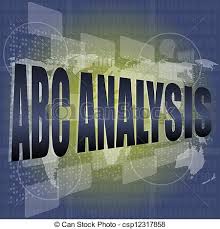In an introduction to Options, we must state that options are a type of derivatives. This leads us to the question: What are derivatives? Well, theoretical definition of a derivative contract goes as follows: A derivative is a contract that derives its value from an underlying. Though this might not explain to you the meaning of derivatives very clearly, it is good enough for our discussion about options today.
Options are actually very aptly named. Options are options to exercise a contract. When a person has bought an options contract, he has actually purchased a right to exercise the contract at his discretion.
Now, let’s understand this in a more relatable manner. Say, Rajiv is trading in the vegetables, and says to a fellow trader and friend Rohan that the prices of cabbage would go from Rs. 100 at present to Rs. 105 in the future. To this, Rohan does not agree. In fact, he says that in case the prices of cabbage go over the Rs. 105 level, he will sell cabbage to Rajiv at Rs. 105. To his Rajiv readily agrees, and why not. But here’s the catch, Rajiv does not enter into this contract in a win-win situation. He has to pay a fees to Rohan as compensation of the risk that Rohan bears. This shall be called a premium.
Now, Rajiv and Rohan can decide the date till which the contract shall hold true. And they can even decide if Rajiv can enforce the contract on the specified date or at any time upto the specified date. This specified date will henceforth be called the expiry date in our discussions.
Also, remember when Rajiv will enforce the contract. He will enforce the contract only when the price crosses Rs. 105 level, else he would be buying cabbage at a price above the market price and it shall be unprofitable to him. This price is the Strike price.
Consider another scenario, where Rohan says that cabbage prices will fall below Rs. 95 level, and Rajiv disagrees. Here, Rajiv proposes that in case the prices do fall below Rs. 95 prices, Rohan may sell his cabbage to him at Rs. 95. For this, Rajiv will receive a premium from Rohan.
In the two cases that we have discussed, the former relates to call options (or the right to buy) where Rohan is the writer/seller of the option and Rajiv is the buyer of the option. The latter is an example of a call option, where Rajiv is the writer of the option and Rohan the buyer.
We have now covered the basics of options. We shall take the discussion further in future articles.
Click here for government certification in Accounting, Banking & Finance





17 Comments. Leave new
A must read for finance students.
well written article !! i liked the way u explained this complex topic so easily with the help of examples.
Well explained
the example you put here makes it even more easy to understand. Thanks for posting this article. It is good.
very well explained. i like the how you have used two different conditions to explain the call option and the put option.
looking forward to the continuation.
Good article! Well explained!
Informative article Anant!!
Very interesting topic 🙂
Well written
great article for beginners
Interesting one.!
Nice one
nice…
Explained very nicely using example in a very simple manner
very well explained with the help of examples !
liked it 😀
Interesting work
nicely explained